McAVG
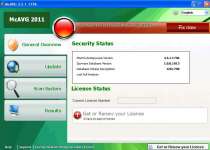 It's common enough for rogue scanners and other kinds of malware to pretend to be legitimate, but most aren't so bold as to hijack a valuable company brand. McAVG 2011 is one of the few that has the guts to do it, and wholly relies on your confusing it with true AVG and McAfee software. If you find yourself infected by this imposter rogue software, ignore all its warnings and instructions, as they're designed strictly to steal your money. Instead of doing what it wants, delete McAVG 2011 thoroughly and you will find your system much better off for the deed.
It's common enough for rogue scanners and other kinds of malware to pretend to be legitimate, but most aren't so bold as to hijack a valuable company brand. McAVG 2011 is one of the few that has the guts to do it, and wholly relies on your confusing it with true AVG and McAfee software. If you find yourself infected by this imposter rogue software, ignore all its warnings and instructions, as they're designed strictly to steal your money. Instead of doing what it wants, delete McAVG 2011 thoroughly and you will find your system much better off for the deed.
McAVG 2011's Roots in Malware
This is far from the first time the Internet's been plagued by fake system scanners, a type of malware known as rogue anti-virus program. In fact, very recently there was a fake AVG 2011! Like many others, McAVG 2011 popped up in (of course) 2011, created and spread by crooks in the Russian Federation. McAVG 2011 is simply the latest face used to victimize innocent computer users and is no different from a shake down for protection money from gangsters. Because of this, all McAVG 2011's messages and alerts should be completely disregarded as unreliable, and the user-friendly interface ignored as a mask slapped over an enemy's face. It's very useful to know what real AVG products look like, because McAVG 2011 is far from identical to them in visual presentation.
Protecting Yourself from Initial Infections
McAVG 2011 can spread itself in a number of ways, particularly through Trojans. Since no one would willingly download a Trojan infection, it's been known to be sent out from sites posing as online malware scanners, update file versions of useful tools like Adobe Flash, or even as a codec. Staying away from insecure sites and file downloads will be the best thing you can do to keep your computer safe. Since you will often not remember installing it, the very fact that it suddenly appears on your computer for no reason should be a giant flashing warning sign.
How McAVG 2011 Abuses Your Hospitality
McAVG 2011 is a very inconsiderate guest on your hard drive. Despite looking similar to Kaspersky Lab products, it operates in a much more hostile fashion. McAVG 2011 will start itself up every time you reboot, unless you use Safe Mode. While running, it will create the appearance of numerous threats on your computer in quite a few different ways.
- McAVG 2011 will create error messages pointing to infections that are not really there. By causing problems with programs in the PC, McAVG 2011 will point an accusing finger at anything other than itself. These error messages will attempt to take top priority, which can cause other problems for your computer as well, such as making real error messages undetectable.
- McAVG 2011 will also snatch control of your web browser from your hands, forcing you to visit its sites whether you want to or not. Some of these domains currently are hydra-networks.com and many variations on 'spycheck' with the latter having at least ten different country-specific domains, such as .jp and .co.uk.
- As a last insult, McAVG 2011 will even create files for no purpose other than to blame them for causing problems. These dummy files only take up room on your hard drive for no useful purpose, and add more reason for you to kick McAVG 2011 out of your electronic home.
Paying for Malware (Don't Take the Easy Way Out!)
Although McAVG 2011 tries very earnestly to get you to purchase it, that's not a smart course of action. Instead of calming down after purchase, McAVG 2011 will continue and possibly even step up its scare tactics. Your credit card will probably also be abused in ways no poor piece of plastic deserves to endure! Although this rogue has been observed to have several modes of operation that help regulate how it delivers its abuse, in no circumstances so far has McAVG 2011 been shown to shut down and leave the user alone.
Since going along with it has no benefits, deleting McAVG 2011 is your only real option. Luckily, the basic anti-malware weapons will still work on it. Try some of the following:
- Run actual anti-malware software from a well-known brand. Check to make sure the program's database has been kept updated, since McAVG 2011 is fairly recent and may not be recognized by older databases. You should install and run these serious scanners in Safe Mode to make sure McAVG 2011 does not try to bypass them.
- Run a tool designed specifically to nuke McAVG 2011. This has a high probability of thorough success when done in Safe Mode. However, it will not clean out other infections, and you will need to take care of them too before your system will regain total security.
- If you think of yourself as a pro, you can try the manual approach and use Windows Search, for example, to search and delete files associated with McAVG 201. Again, the best way to do this is using Safe Mode. Unlike your other choices, this method does run the risk of missing a file that will allow McAVG 2011 to restore itself completely. Get it all done before rebooting if you can, or it might all be for nothing!
If you have given the creators of McAVG 2011 your money, call your credit card company up. Have a calm chat with them, and discuss how you would like to get the charge canceled. If you did not wait too long, there is a good chance you will be able to pry your money back from the hands of these malware-spreading criminals.
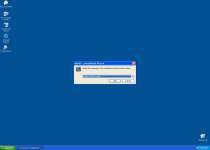
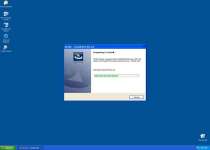
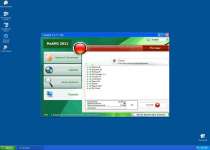
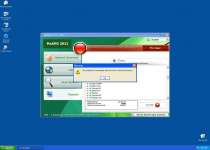
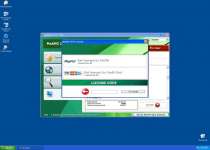
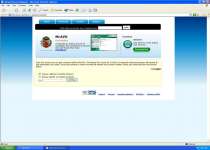
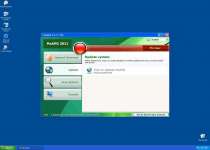
File System Modifications
- The following files were created in the system:
# File Name 1 %AppData%\[random].exe
Registry Modifications
- The following newly produced Registry Values are:
HKEY..\..\..\..{Subkeys}HKEY_CURRENT_USER\Software\Microsoft\Windows NT\CurrentVersion\Winlogon "Shell" = %UserProfile%\Application Data\.exe
Leave a Reply
Please note that we are not able to assist with billing and support issues regarding SpyHunter or other products. If you're having issues with SpyHunter, please get in touch with SpyHunter customer support through your SpyHunter . If you have SpyHunter billing questions, we recommend you check the Billing FAQ. For general suggestions or feedback, contact us.